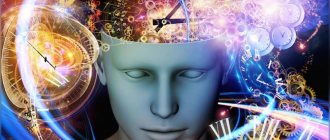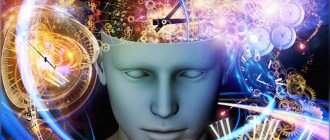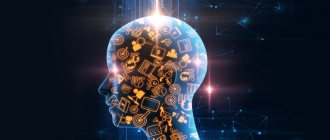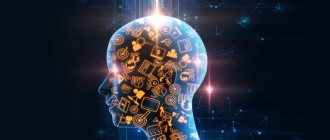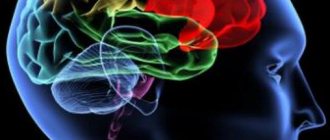Intelligence in psychology and not only is considered as a complex of mental and mental abilities. In general, its definition is as follows: it is the mind, the quality of the psyche, expressed in the ability to cognition, to realize something, to learn, to remember. The functions of intelligence are based on experience and its quality. An intelligent person is one who is able to understand and apply not only standard, but also non-standard ideas. He can use knowledge to control the world around him.
You can learn more about what the mind is from the article. We also show development methods and answer the question of how to determine your own IQ (intelligence quotient).
History of the study: basic and important points of view
Speaking about the historical milestones of the concept of “intelligence,” it is worth noting the achievements of some researchers and scientists. There are many theories, approaches and schools, but it is inappropriate to consider any one or any one as the only true one without immersing yourself in the theory.
Noteworthy in the history of the study is the experience of the creators of special tests for assessing IQ - J. Cattell and L. Theremin . But their main merit is not that they created informative methods for identifying intellectual abilities. They were among the first who managed to substantiate the absence of dependence of the development of intelligence on the conditions in which the formation of personality takes place. Later, all their evidence was destroyed, and their work was declared invalid.
In a sense, the opposite point of view was expressed by A. Binet and T. Simon . In their works, they consider the mind as a complex of abilities based on experience, as a set of achievements in mental development.
The work done by D. Wexler . He was able to show that the reasonable behavior of every person is based primarily on the influence of intellectual factors.
From the point of view of child psychology, the contribution made to the study and analysis of the problem by V. Stern . He was able to prove that the development of children's mental abilities is influenced by the quality of relationships with people around them. Not only with adults, but also with peers, for example, in kindergarten or at school.
Let us present the points of view of other researchers, figures not related to science, their views and approaches to the definition of the analyzed concept:
- Thomas Aquinas viewed the divine mind as an essence existing “in parts” in each of the people. He believed that human mental abilities are limited only by the sphere of the mind, which contributes to contemplation and comprehension of something;
- L. S. Gottfredson viewed intelligence as a unique mental ability. She said that it included the ability to plan, solve various problems, think, learn and study;
- F. N. Ilyasov considers the IQ indicator as an expression of the ability of a material system (a person for him is a material being) for independent learning, for constructing various programs and activity algorithms.
of Ch. Spearman should also be noted . He managed to prove that all mental abilities are connected and have a static connection. He justified this by the fact that if a person is capable of solving one conditional group of complex and non-standard problems, then he can easily solve others, even if effort is required.
Thus, we can say that the history of the study of the concept is centuries-old. The problem was studied by both scientists in antiquity (Thomas Aquinas, XIII century), and scientists of the 19th-20th centuries. (C. Spearman and others). There are also many modern researchers who continue the work begun centuries ago.
Do you think the topic deserves close attention?
Yes! There is so much unknown... And the sphere of intellect is part of this unknown.
100%
No. There are much more important and pressing problems. First you need to deal with them.
0%
Can not say. I don't realize the importance of such research.
0%
Voted: 4
Personal qualities of the child
Much depends on character and temperament. For example, it will be quite difficult for phlegmatic people to express themselves at school. They may begin to be considered incapable simply because of their temperament.
Children can be roughly divided into thoughtful and impulsive. The former can delve into the task and work with it as much as they need, despite the complexity. The latter are aimed at quick results, so they often give the answer that first came to mind. This makes the learning process difficult.
Also, thoughtful children avoid participating in the life of the group (class) and try not to get into unfamiliar social situations. Impulsive people easily join the team and are not afraid to take risks.
6
Basic functions of intelligence
Let's highlight 4 main functions and tie them to real life examples. This is necessary to simplify understanding of the essence and content of individual functions. Here they are:
- Promoting the occupation of certain positions in different communities, as well as the acceptance of roles and statuses. Without developed intelligence, no person can adequately take on certain responsibilities. An example is a man’s acceptance of the role of father after the birth of a child. If the IQ is not high enough, the tasks associated with fatherhood will be solved unsatisfactorily.
- Gaining knowledge, mastering skills, development . Everything here is exactly the same as in the case of the first point. Let's show everything with an example: an intellectually developed person is capable of learning, can independently search for information, process and systematize it. It's different when it comes to people with weak minds.
- Demonstration of talents and realization of potential. The quality of mental abilities determines how fully a particular person reveals his own talents and realizes his potential. Example: a highly intelligent person decides to master a new field of activity. It comes easy to her. A lack of intelligence in this situation will lead either to difficulties in business or to the absolute inability of the individual to use his own resources in order to achieve the goal.
- Self-realization . This is almost the same as point three. But here it is more fair to talk about the quality of abilities and the “strength” of the impulses of a particular person in terms of solving problems that stand in the way of his development, including personal development. A simple example: a high school student sets himself the goal of finishing the year “excellently,” that is, getting straight A’s. If his IQ is sufficient, everything will be fine. Otherwise there will be problems.
So, we can say that without developed intelligence, any activity, any thought is something that will not have a productive result or implementation. Neither thoughts nor actions can be effective and efficient without developed intelligence.
Which feature do you think is most important?
First. It seems to me that roles and statuses need to be perceived adequately to their significance.
0%
Second. Without knowledge and development, none of us could exist in the world in which we live.
100%
Third. Talented people make the world a better place.
0%
Fourth. I think self-realization is very important.
0%
Voted: 2
School influence
At school, obedience is most valued. This often acts as a limitation for creative children. Many restrictions, rules and patterns stifle their natural originality.
Back in the twentieth century, the Italian Maria Montessori proposed an education system in which each child studies at his own rhythm, that is, individually. This led to positive results. But since freedom and independence are not allowed by society, the Maria Montessori method is not used.
5
Types of intelligence in psychology
There is one notable classification. This is Gardner's classification of intelligence. He is a proponent of the concept of multiple intelligences.
The scientist was able to identify the following 9 species:
- Visual-spatial. This is about a vivid imagination, the ability to fantasize and navigate in any situation.
- Linguistic. It's about the love of reading and communication. People with this type of intelligence have developed talents in preparing essays and the ability to study foreign languages.
- Musical. In this case, the following areas are developed: perception of music and rhythm; ability to sing and master musical instruments; sense of poetry and tact. People with success in teaching music and conducting are most often found with this type of intelligence.
- Interpersonal. It’s about the ability to build communications, understanding people’s moods, and productivity when working in a team. Often people with such abilities become leaders, psychologists, and diplomats.
- Intrapersonal. In this case, everything is the opposite of what is written in paragraph four. However, the high ability for reflection in people with such a dominant type of mind makes them excellent writers, philosophers and more.
- Naturalistic. This is about a high interest in the world around us. This is about the craving for biology, chemistry, physics. Naturalists are often experimenters, geologists, and ecologists.
- Bodily-kinetic. It is characteristic of people who are able to convey emotions through “bodily means.” High coordination, developed motor skills, craving for sports and constant activity - all this is about them.
- Logical-mathematical. This type is accompanied by the ability to quickly analyze data, visualize it, reason logically and quickly remember information. People with it often become mathematicians, programmers, and engineers.
- Existential. There is an opinion that this species is a priori characteristic of people. It is expressed in the ability to think.
Initially, Gardner identified only 8 types. They were not assigned an intrapersonal type. However, as his activities progressed, the psychologist decided to revise the classification under pressure from colleagues and supplemented it. We have presented a later version, although it is most often said that in fact Gardner is the author of the classification of eight types of intelligence. This is not entirely true.
There are two notable groups of intellectual abilities, identified by scientists based on the criteria of “the ability to understand people’s behavior” and “the ability to understand emotions and feelings.”
Emotional intellect
It is usually considered as a set of knowledge and skills, an individual’s abilities in terms of recognizing feelings and managing emotions. If the emotional sphere is sufficiently developed, a person will be capable of understanding intentions and motivations. Both our own and others. It is common to talk about emotional intelligence as a flexible skill, that is, it can be developed and formed.
There is an opinion that the level of development of the emotional sphere of intellectual abilities determines how successful a person will be in life and in his career.
If this type of mind is poorly developed, if a low level of IQ is observed in this direction, the person will have the following qualities:
- irritability;
- conflict;
- indecision.
We can say, therefore, that if the emotional component of general IQ suffers, then the person experiences difficulties communicating with other people and is indecisive. However, this kind of deficiency can be compensated for either by developing the appropriate skills or by “pumping up” the social components of intelligence.
Social intelligence
The ability to interact in society and the behavior of the individual depend on how developed it is. A socially intelligent person is able to correctly understand people. He has skills, in a sense acquired, in terms of interpersonal interaction, as well as in terms of social adaptation.
People in whom this type of intellectual spectrum ability is well developed are characterized by the following qualities:
- the speed of making judgments about others;
- development of analytical skills;
- depth of understanding of things, objects and phenomena, people.
It is generally accepted that if a person has equally and well developed emotional and social spheres of intelligence, then he is almost a genius. But this is a rather controversial statement. Achieving success and being an effective person capable of self-development does not mean having outstanding IQ scores.
Which of the psychological types shown is typical for you in your opinion?
It seems to me that it is emotional. The description fits.
0%
I think it's social. I understand people quickly and easily, have good analytical skills and have a deep insight into what interests me.
66.67%
I think that in my case everything is approximately at the same level.
0%
I find it difficult to answer.
33.33%
Voted: 3
Games for developing intelligence
The leading activity of preschoolers and primary schoolchildren is play. Accordingly, classes in a game format will be perceived much easier and more positive. We offer you games that will allow you to develop all areas of your intellect.
Who's missing?
A simple game in which the child first needs to remember several objects (you should start with 3-4), and then indicate the eliminated object.
For example : place 4 toys in front of the baby: a bear, a cat, a dog and a hare. Ask your child to name all the objects and then turn away. When the child is not looking, remove one toy and ask him to name what is missing.
With the help of such a simple game you can not only develop attentiveness and memory, but also learn colors, shapes, names of objects, animals and plants. Gradually the game should be complicated: use more and more items; do not remove things, but change their places; conduct the game without warning, etc.
My big bag
A game in which the child needs to evaluate the purpose of the trip and select the most important items for its implementation. Allows you to develop logical thinking, observation and independence.
For example : put a large bag in front of the child and tell him that his favorite toy wants to visit grandma/go to the store/school/play with friends, etc. The child needs to help the toy collect the bag and put only 5 things in it (the number of items in the bag should be limited). When packing luggage, the child must explain his choice, keep count of the packed items and carefully pack the bag.
Treasure search
This game will be a real adventure that will help you gain spatial orientation and attention skills.
For example : hide an interesting object in a place accessible to the child and invite him to find the “treasure”. To do this, he must execute your commands, structured like: “Take two steps forward!”, “Turn to the right!”, “Look under the table!” etc.
You can complicate this game endlessly: add riddles along the baby’s path; offer to follow not your commands, but navigate using the map; offer to draw a map yourself under your dictation, etc.
The letter is away
An excellent opportunity to keep your child busy for a long time and get acquainted with the alphabet and develop reading skills.
For example : dedicate each day to a specific letter of the alphabet. Read fairy tales about her, find her in the text, speak only in words starting with this letter, etc. The greatest effect can be achieved if all family members are involved in the game.
Find the odd one out
Offer your child different sets of objects so that he can choose one extra one from among them. The main thing is to justify your point of view, since quite often there may be several correct answers. The game will allow you to develop logic, knowledge about the world around you and vocabulary.
Gradually, you can invite the child to find common characteristics in dissimilar objects, gradually offering more and more unusual combinations.
Levels of intellectual activity
It is customary to distinguish 3 intellectual levels, which, by the way, have been and are being considered by many scientists who have devoted themselves to developments in determining the IQ indicator.
Each intellectual level presented below is characterized by unique features. Let's describe them:
- Stimulus-productive level . In this case, mental activity depends on how strongly external factors influence the personality. We are talking about incentives and the productivity of reactions to them. At this level, it is fair to speak of any act of mental activity as limited by initially received ideas about something. At the same time, a person is capable of solving various kinds of problems, but there is almost no coherence and consistency in these decisions: everything is carried out in a formulaic, sometimes mechanical way.
- Heuristic . Here the matter concerns spontaneity in cognition, which often ensures the effectiveness of mastering and understanding various patterns. At this level, a person gains the ability to formulate general ideas from disparate problems and phenomena. At the same time, she herself begins to identify various patterns and find explanations for them.
- Creative . This level is the highest. Here the individual becomes an analyst, capable of solving even the most complex problems. Here, at the cost of effort or without it, she easily “gets to the bottom” of all things, objects and phenomena.
Signs of High Intelligence
It is believed that the most obvious signs that everything is fine with a person’s intellect are the following:
- honed professional skills , the ability to learn new skills without effort. If we talk only about the professional sphere, it is inappropriate to use the concept of “intellectual”: even a person who does not have an outstanding mind can become a professional in this or that matter. It's about mechanicalness, about remembering. This is about a pattern due to which long-term practice of something almost always leads to at least good results. Such qualities contribute to the fact that any adaptation for a person is always an extremely easy adaptation;
- the ability to concentrate attention on what is important, switch it to necessary things and keep it on them. Inattention and absent-mindedness are considered as signs that something is wrong with a person’s IQ;
- developed self-control . At the same time, a person can control not only his own actions and actions, but also, to some extent, influence the emotions, feelings, and behavior of people around him;
- sense of humor adequate to reality . The point is not that a person values and encourages only intellectual, for example, humor. It’s exclusively about what he realizes, literally senses and senses the line of appropriateness. In this case, a person can equally like “dark” jokes and those that require mental effort to understand. But in any situation, he first of all, on a mechanical level, evaluates the appropriateness. If a particular act of humor is not appropriate, there will be no laughter. There will only be censure, albeit silent.
Which parameter indicates “backwardness”?
There are several such parameters. Of course, it is more advisable to use tests and rely on the opinions of researchers, but we can identify the following group of signals that IQ is at an insufficient level. It doesn’t have to be low at all. We are talking exclusively about the lack of development as such.
Here are the symptoms:
- suggestibility . It can be explained by the fact that a person is simply not capable of going, as they say, his own way. It is easier for him to listen to others, to act as others act. It’s easier for him to follow the beaten path;
- statement . This is almost the same as suggestibility, but in the context of activity and decision making. Even if a person decides for himself that this or that path will be the only correct one for him, for example, he can be unsettled by citing the action or opinion of another “authoritative” person as an example;
- poor vocabulary . Poor vocabulary is often linked to problems with memory and learning. This is one of the signals of low intellectual abilities. The simplest example, typical of undistinguished youth, is the use and abundance of words and phrases in speech: “well”; "type"; “as if” and so on. In the worst cases, young people use 5 significant words per 10 words. Everything else is just verbal garbage.
- tendency to think narrowly . This, for example, is about the inability to look at familiar things from an unusual angle.
What signs could you find in yourself?
Only good. I feel proud. Hooray!
50%
Sad to admit, but negative. We need to improve our knowledge and abilities.
25%
Both those and those. Confused (confused).
0%
Can not say. I behave and display qualities based on the context of specific situations.
25%
Voted: 4
Genius
In some cases, when a person exhibits high intellectual activity in creative activity, it may be accompanied by what, based on certain characteristics, is perceived as genius.
If we understand the meaning of the mechanisms that form the basis of the psyche and determine intellectual potential, as well as the essence of this potential itself, we can talk about an extreme state of intellectual creativity, i.e. about genius. As a rule, genius is the degree of intellectual potential that contributes to the creation of extraordinary and particularly outstanding creative results.
The state of genius is distinguished by its characteristics of mental as well as physiological organization. And these characteristics are such that without painstaking and quite serious work, you simply shouldn’t expect any brilliant ideas and results. Among these characteristics are:
- The required level of energy and energy, depending, among other things, on the characteristics of blood movement through the vessels, metabolism and ventilation of the lungs. If they do not meet certain parameters, the human body will not have the opportunity to fully develop creative skills.
- Regardless of the level of energy and energy, a person must have a motivating force - something that will constantly push him to action and force him to stick to the chosen direction. Otherwise, a person will not even lift a finger, because he will not have any goal.
If these two characteristics are present, and their combination turns out to be suitable, a person becomes dissatisfied with the current state of affairs, which requires conscious volitional efforts to change. And when the understanding of a particular situation accumulates and reaches a critical point, that same insight occurs, called genius. If a person lies on the couch and looks at the ceiling, he better not count on any revelations.
What is genius? First of all, this is a constant stay in the process of comprehending some creative idea, incessant brain activity that prevails over everything else. It does not stop even when a person is sleeping, because it is of such great importance to him that it receives nourishment from most existing areas of perception.
This activity does not appear on its own or out of nowhere. This is a consequence of painstaking study and thinking about a certain problem or situation that plays the most important, almost the main role in a person’s life (one of such situations may be a state of love, when it is impossible to think about anything else).
The conclusion follows from this: in order to do truly brilliant things, it is not at all necessary to be a natural genius or to inherit some genetic traits from your ancestors. The state of genius can be achieved artificially by “getting sick” with something completely and irrevocably. This “disease” activates maximum intellectual potential, thereby leading to a state of creative genius.
We are deeply convinced that every person should develop thinking and intelligence. This should not be influenced by the environment, circumstances, or any other reasons. The only thing that should have an impact is a sincere desire to develop, become better and smarter. We wish you to have this desire, never stop at anything and, of course, collect as much information as possible about the work of intelligence and its features.
Let our article serve as another coin to your knowledge bank. We sincerely wish you good luck and achieving new heights!
We also recommend reading:
- Storytelling
- General Intelligence Factor
- Gardner's Theory of Multiple Intelligences
- To develop or to degrade?
- Deep Learning: What is the essence of the deep learning method?
- Cattell-Horn-Carroll theory
- How to become smarter: 4 types of intelligence according to Stephen Covey
- Intelligence and its development: several recommendations
- What You May Not Know About Intelligence
- Wechsler test
- Erudition and intelligence: why they only work together
Key words: 1LLL, 1Cognitive science
What factors influence mental abilities?
They are influenced to one degree or another by the following factors: heredity; development of thinking; nutrition, including maternal nutrition during pregnancy; parenting talents and others.
Here are specific examples:
- genetics (heredity). There are many studies confirming the fact that men and women with high IQ scores raise the same children;
- influence of external factors. These are, for example, the methods of education used by a person’s parents in his childhood, the availability of education, and so on;
- influence of peers and friends.
It is inappropriate to speak unequivocally about the factors influencing intelligence. Much depends on the individual traits and characteristics of specific people, their susceptibility to something.
An interesting and scientifically substantiated fact: there are differences in mental abilities due to gender and age characteristics.
Gender differences
Speaking about them, we should first of all dispel the popular myth that men are smarter than women. This is wrong. But there are differences, proven by many studies, which can be shown in abstract form as follows:
- girls develop more actively in terms of developing intelligence up to the age of 15, while boys, until they reach this age, often show some signs of inability to mature and develop;
- Most male scientists work in areas related to the exact sciences, while women, who are outstanding researchers, work in the humanities.
Age differences
It is inappropriate to say that the foundation of intelligence is age. On average, the peak of knowledge of something for different people falls on approximately the same age periods. Here are specific examples:
- IQ increases rapidly until the age of eighteen. Transitional periods slow it down.
- At about 20 years of age, intellectual development begins to slow down.
- The maximum development of arithmetic and logical potential occurs at the age of approximately 30 years.
- After fifty, some people begin to look at psychological issues that previously seemed complex to them as completely understandable and simple.
We can say that all the age differences that have been shown are due precisely to the age at which a person is.
Communication Factor
Communication with a child is of utmost importance for many areas of his life: social, emotional, intellectual.
A child, while in the womb, can already distinguish her speech, so from a very early age it is important to communicate with the baby.
Features of the development of children's intelligence are associated with age-related changes. During the “why” period, which begins in children 3-4 years old, it is worth taking this chance to explain various phenomena of life. You can communicate with older preschoolers “as equals,” discuss events that have happened, ask for their opinions, and ask about emotions and feelings.
How to increase IQ?
Development methods are simple and obvious. Here are 9 recommendations:
- Train your brain and memory. Good examples: solving math problems, memorizing phone numbers of friends and dialing them without consulting the phone book.
- Watch your diet. With food, necessary substances enter our body. The functioning of the brain depends on some. If the diet is of poor quality, the likelihood of problems with mental activity will be high.
- Don't overexert yourself. Your waking and sleeping patterns should be balanced and suit you.
- Read books. There is no need to talk about the usefulness of reading.
- Find an intellectual hobby or passion. Plus - the opportunity to do interesting things for yourself and “pump up” your IQ.
- Learn new things. An example is learning a “cute” foreign language.
- Watch educational films. Comedies and action films, thrillers are all great, but your weekly “bill” should always include some kind of film made by, for example, National Geographic.
- Try to start studying what you have long wanted. Maybe as a child you liked topics related to space? Then forward to the “stars”.
- Don't let routine “devour” you. Change your habits, rearrange your home, take different routes to work.
How to increase a child's intellectual abilities?
Here are recommendations to help children develop:
- teach them to eat properly and exercise regularly;
- Make sure that your study, activity and rest schedule is balanced. Mental and physical fatigue negatively affects the development of a fragile organism;
- teach children to read. It is not at all necessary that they are only interested in books from the school curriculum;
- Offer intellectual games such as Monopoly and chess during joint leisure;
- enroll your child in a foreign language course;
- Offer joint solutions to various intellectual problems and passing IQ tests.
If all the advice presented during practical implementation is combined with love and care for the child, he will become very smart. And over time, everything that you taught your child will become part of his habits.
How to increase intelligence in an adult?
Read the section “How to increase your IQ.” There are some good recommendations there. You can improve your score if you strive to follow them.
Stages of thinking formation
The first stage of development of intellectual abilities occurs in the 2-3rd year of a baby’s life. At this time, it is worth paying attention to the baby’s vocabulary. To enrich it, parents need to talk to their baby as often as possible and read expressively.
It is also worth working on the basics of logic; for this, the child is offered various exercises:
- Familiarity with objects of different sizes, shapes, textures and materials. By feeling, biting, throwing and breaking them, the child gradually realizes that different objects have different properties.
- Getting to know smells , tastes and sounds. At the same time, the baby develops the ability to distinguish tastes, smells, sounds and assign certain characteristics to a number of objects. “An apple has its own shape, its own taste, its own smell, but a rose looks, smells and feels completely different.”
- Formation of the foundations of the psyche . Improving intellectual abilities occurs through influence on the sphere of the psyche; in this case, fairy tales are a proven assistant.
The second stage begins at 3-4 years. At this age, the child’s “I” awakens: he realizes himself as a full-fledged person who has his own thoughts and plans. There is no need to hinder the independence of three-year-old children; let them be active and explore the world in a manner that is comfortable for them.
To influence a child’s mental abilities, parents should:
- encourage the child's initiative . Let him do your usual actions worse and longer, but he does it himself and of his own free will - this is important.
- give feasible instructions . At this time, you can accustom the child to duties and responsibility for their implementation.
- your child's small victories seriously and attentively . Understanding on the part of parents will help form an adequate level of self-esteem for the child.
- the child's creativity and creative thinking . Let the baby draw, sculpt, play musical instruments - do what he likes.
The third stage takes place at 4-7 years. The cognitive development of preschool children should take place in a playful way, in which they most effectively absorb information. Board, computer and outdoor, single and group games allow you to develop logic and increase your erudition in an unobtrusive environment.
At this age, it is necessary to increase the emphasis on communication with friends, relatives, and acquaintances - this will help develop the child’s social skills. Remember: the development of the intellectual and social abilities of preschool children is the basis for learning at school.
Intelligence quotient: methods of determination
There are several interesting ways to determine the coefficient. These are tests. We see the following 5 as noteworthy:
- Eysenck test. Allows you to determine neuropsychic lability, extraversion and introversion from the perspective of intellectual development.
- Amthauer Structure of Intelligence Test. The technique is used to determine what the structure of an individual’s intellectual abilities is. Suitable for children and adults.
- Raven's progressive matrices test. It is used by psychologists and not only to identify the degree of mental development, but also to assess the logical activity of individuals.
- Wechsler test. Most common in English-speaking countries, it is used to study the mental sphere of people.
- Bennett test. This technique for identifying mechanical intelligence is used by many Western employers to assess the qualities of potential employees.
Emotional Intelligence Factor
Emotional intelligence is the ability to understand one’s own and others’ emotions, express them correctly and manage them.
Emotional intelligence is inextricably linked with mental intelligence. When making decisions, people are often guided by emotional intelligence, giving in to emotions and feelings. Therefore, it is important from an early age to teach a child to understand his emotions, learn not to suppress them, and find a common language with other people. You can learn more about developing emotional intelligence here.
FAQ
Below are answers to questions related to the topic discussed.
What is the difference between intellect and mind?
There are two points of view. According to the first, the concepts are identical. However, there is also an opinion according to which the mind is thinking on one plane. Intelligence is considered as a set of qualities and abilities, including thinking, memory, and imagination. We consider the first position to be correct and recommend considering the concepts without separation from each other.
How does intelligence differ from erudition?
See the answer to the previous question. In a general sense, the concepts are identical, but there is not always a fair division of “competencies”: the intellectual sphere is attributed only to information processing, and the sphere of erudition is attributed to the ability to reproduce and assimilate knowledge and skills.
What is artificial intelligence in the broad sense of the concept?
This is the “humanization” of the computer in terms of instilling in it the ability to think. That is why it is called artificial. In a general sense, AI is the ability of a computer to learn and solve problems, to act.
What is the IQ level of celebrities?
The most striking example is Bill Gates. His IQ is 180. Sergei Shnurov, for comparison, has an IQ of 135. Here's a not-so-outstanding example: according to experts, Dana Borisova has an IQ of 35. Olga Buzova “gone” a little further. Her result is 45 points.
What should be the IQ of a normal person?
The norm is considered to be 90-115 points.
What is the IQ of the smartest person?
This is mathematician Terence Tao. He works at one of the universities in the United States. Result – 230 points.
Educational games factor
Games that develop intelligence are a necessary condition for children, since play is the most suitable activity for a preschooler.
When choosing toys or games, you should rely on their function, giving preference to educational ones: construction sets, puzzles, various puzzles.
It is not necessary to purchase expensive toys; sometimes the most ordinary things can stimulate a child’s thinking and imagination. They are also called substitute items. For example, you can replace an iron with a cube, or a thermometer with a stick.
When a child learns to use substitute objects in a game, he pronounces his actions so that it is clear what exactly he is replacing. This format of the game develops speech, generalizes the child’s existing experience, and stimulates the imagination.
Intellectual games and exercises
- “Finish the word.” The adult begins to pronounce the word, naming the first syllable, and the child finishes, then they change places. The faster a child comes up with the ending of a word, the more actively his thought processes work.
- "The words are backwards." Invite your child to come up with an antonym for the word, explaining that it should be the opposite. With this game you can reinforce the concepts of sizes (big-small), colors (black-white), quantity (one-many), states (cheerful-sad).
- "Magic bag" The adult puts an object in the bag and invites the child to ask leading questions to determine what is in the bag. You can only answer questions with “yes” and “no”. This encourages the child to learn to ask the right questions, the answers to which will give him an understanding of the subject.
- "Who lives where". An adult lays out cards with images of animals and their holes. The child must compare the cards and decide based on essential features who lives where.
- "More less". An adult offers to examine the objects and say which objects are more and which are smaller. For example, car dolls, forks and spoons, sneakers. In nature, you can compare different types of trees, plants, and birds by quantity.
Coefficient and methods for determining it
Intelligence quotient is called IQ. With its help, scientists determine the degree of development of a person’s mental abilities. In rare situations, IQ tests are used to compare intelligence between humans and animals. Researchers were able to determine the IQ of even an earthworm.
IQ is determined by conducting highly specialized tests. With their help, you can find out various factors:
- Absence or presence of mental disorders, pathologies.
- Calculate the “intellectual age” of the individual, which is compared with biological age.
- Level of development of mental abilities.
Creating an IQ test is difficult. This is usually carried out by a team of experienced psychologists together with scientists from other fields.
Factors in a child's intellectual development
Mothers always take care of their babies. It is your participation that is the basis of his life. Thanks to your love and attention, his development accelerates.
It is a great joy for every loving mother to follow the success and development of her baby. But to help, you need to know the main stages of its development: “He turned around, sat down, began to crawl...” - this is a visual chain of stages familiar to everyone. However, do you know what the true indicators of child development are?
“Benchmarks” of intellectual development
| From 7 to 12 months | 12 to 18 months | From one and a half to 2 years | From 2 to 3 years | Over 3 years old |
| Development of fine motor skills | First syllables and simple words | Ability to say "you" and "I" | Simple drawing | Mathematical logic |
| Eye-hand coordination | Ability to distinguish shapes | Simple math operations | Color recognition | Cooperation |
| Speech understanding | Spatial thinking | Assembling and disassembling objects | Creativity | Logics |
| Causal relationships | "Dancing" to the music | Run | Memory | Concept |
| Crawl | Walking without support | Role-playing games | External research | Judgment |
| Supported standing | Social orientation | Jumping and climbing | Rationale |
The question arises, can nutrition help in the development of intelligence?
Just as a child’s intelligence is formed under the influence of a large number of factors - “Basics of proper nutrition.” It is your and your baby’s nutrition that is the basis for rapid and high-quality development, especially if it contains enough DHA (docose-hexaenoic polyunsaturated fatty acid). For detailed information about proper nutrition, please read the article “Basics of Proper Nutrition” on the pages of the company’s website enfamil.ru. DHA is also called “brain gold”, because it is the main element in food necessary for normal development of the brain and vision. Clinical studies have shown that the presence of DHA in the child's diet in the most optimal** quantities during maximum brain growth helps to increase mental abilities, improve logical thinking, language ability and visual acuity. Strong immunity and optimal brain development will allow kids to achieve success. This was an amazing discovery for many mothers, because it is difficult to find powdered milk formula that would help children become healthier and more developed*.
*When compared to infants fed formula without supplemental DHA
**The content of the DHA (docosahexaenoic acid) component in baby food should be at least 0.3% of the total fatty acids, which is somewhere in the range of 100 mg per day (the amount recommended by experts).
Enfamil Premium
Modern infant formula Enfamil Premium (Enfamil Premium) is produced by one of the leaders in the production of high-quality nutrition - the manufacturer Mead Johnson Nutrition. He has won the trust of a large number of pediatricians and mothers in numerous countries around the world.
After all, this nutritional mixture contains all the microelements the baby needs. A special concentration of DHA has also been created here, which makes it as identical as possible to mother’s breast milk.
Now let’s look at the results of independent scientific research, which show a number of advantages in feeding babies with Enfamil Premium formula
For children 9 months old
A study by N. Pastor shows an improvement in the functioning of the respiratory system in the first year of a child’s life.
(Pastor N, Soler B, Ferguson P., Clinical Pediatrics, Nov 2006, 45, 850-856)
In the study of Dr. J.R. Drover - better results in solving various situational tests.
(Drover JR et al. Child Dev. 2009; 80: 1376-1384)
For babies 12 months
In a study by Dr. S. E. Morale, they began to see 1.5 lines more and more clearly than other children (according to the vision assessment table).
(Morale SE et al. Early Hum Dev.2005;81:197-203)
For children aged 18 months
In a study by E.E. Birch in 2000, the indicator of their intellectual development increased by 7 points.
(Birch EE et al. Dev Med Child Neurol. 2000;42:174-181)
In children 3 years old
In a study by E.E. Birch in 2010, during the first four years of a child’s life, an improvement in the functioning of the respiratory system and strengthening of the immune system was observed.
(Birch EE et. al. clinical study report. The Journal of Pediatrics.2010, 156:902-906)
For children 4 years old
In a 2007 study by E.E. Birch, higher rates of verbal IQ (an indicator of the development of intelligence). It determines the volume of vocabulary, knowledge, ability to remember various numbers and solve simple logical and arithmetic problems.
(Birch EE, Early Human Dev 2007, 83:279-284)
But a 2009 study by Dr. J.R. Drover shows that babies who eat ENFAMIL PREMIUM milk porridge at the age of 9 months perform better and faster on a variety of situational tests.
(Drover JR et al. Child Dev. 2009; 80: 1376-1384)
Interesting information
Did you know that kids can solve situational tests***?
Some children at the age of 9 months demonstrate the ability to solve the simplest tests. But they are the main indicator of early brain development.
***MEPS is a two-part “trial and error” test that examines the ability to find solutions and act deliberately. 229 children participated in the study. During the test, each of them was given a toy to play with for a certain time, then the toy was placed on a napkin, covered with another napkin and put away. To take the toy again, the baby would need to move the entire structure towards him, and then remove the napkin and take the toy lying under it. Each person was given three attempts. Ultimately, the study showed that babies who were fed formula with extra DHA performed significantly better on all three trials than babies who were fed formula without DHA.
To complete tasks, children must be able to balance memory, concentration, and planning skills. This skill shows the level of intellectual development of the baby.
Photos illustrating the research process are shown below:
Data from another clinical study by Dr. E. Birch (BirchEE, EarlyHumanDev 2007, 83:279-284) proved that the skill of solving various situational tests in children at the age of 9 months is directly related to their IQ (intellectual development quotient), as well as the amount of reserve words at the age of 4 years. Toddlers who perform better on tests early in life are more likely to have large vocabularies and high IQ levels in the future.
A study of children aged 18 months has proven that feeding Enfamil Premium formula increases the level of intelligence development by 7 points, compared to another control group*. These children performed better on an IQ test that assessed intellectual development, memory, social interaction and language use.
Did you know that DHA-enriched foods help your baby's vision develop?
Visual acuity is an important indicator of brain development. After all, visual information accounts for 83% of all information received by the brain. The better the baby sees, the more information he can receive, thereby stimulating brain development.
DHA is a dietary element essential for optimal vision development. Research by Dr. S. E. Morale showed that children fed Enfamil premium formula in the very first year of life have greater visual acuity: they see 1.5 lines more (according to the table) compared to the other group of babies*.
*Morale SE et al. Early Hum Dev.2005;81:197-203
This photo shows how different the world view of a one-year-old baby fed formula without DHA (left side) and Enfamil Premium formula with added DHA (right half).
Enriching the mixture with DHA has a beneficial effect on the child’s immunity!
Enfamil Premium strengthens the baby's own immunity: the number of allergic reactions and ARVI diseases in the first three years of life decreases. This was proven by independent studies in 2010.
Be very careful when choosing infant formula
If breastfeeding is not possible, be sure to consult with your local pediatrician, and when purchasing infant formula, be sure to study the label, paying special attention to the composition. The presence of the necessary nutrients and their quantity, as well as the level of DHA (docosahexaenoic acid) content, are very important.
Manufacturers rarely add a component such as DHA to various baby food formulas due to its relatively high cost. The optimal level of DHA content, confirmed by scientific research, should reach 90 mg per 100 g of nutritional formula in dry form (or 11.50 mg per 100 ml of cooked food), this amount is equivalent to what is found in breast milk.
A balanced and nutritious diet is of great importance at the beginning of life, because it is the basis for both the active growth of the baby, as well as the rapid development of a person’s intelligence, immunity and visual acuity.
Proper healthy nutrition from birth is the key to harmonious personal development and good health in the future. Remember that the development and health of the child depends on your correct choice of formula.
